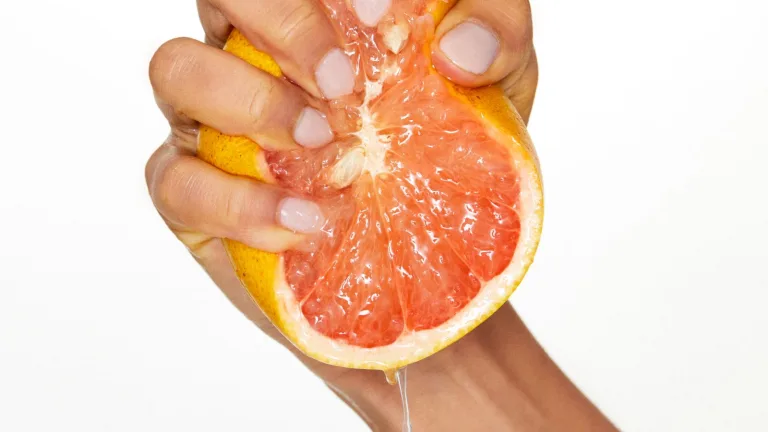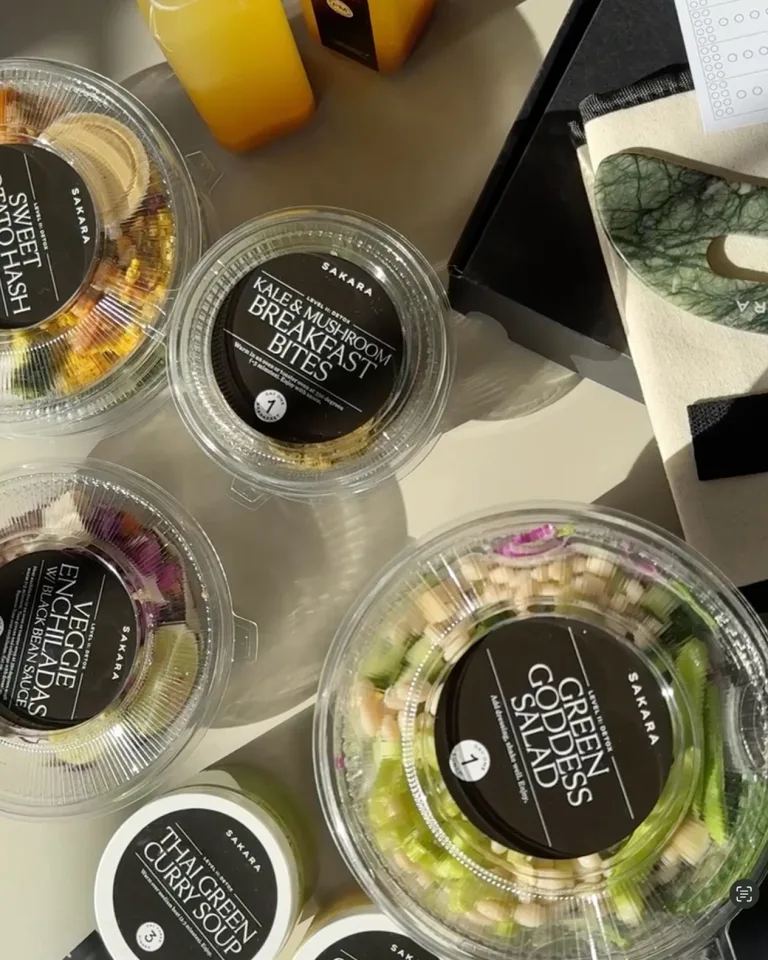Detoxification isn’t something that only happens during a cleanse or retreat; it’s an ongoing process managed by your body’s natural detox organs and pathways.
By Colleen Coffey, MS, RDN, LDN
•Dec 05, 2024
Learn how daily habits and nutrient-rich foods support your body’s natural detox.

By Colleen Coffey, MS, RDN, LDN
•Dec 05, 2024
Long-term detoxification isn't about quick fixes; it involves integrating daily practices that support these organs and minimize toxic exposure. Consistently eating nutrient-dense foods, while reducing exposure to environmental toxins, alcohol, and chemicals, is crucial for effective detoxification. Periodically, short-term therapeutic detoxes can be beneficial when your system is overwhelmed by the toxins of the modern world. These focused detox periods work to nourish and optimize your body’s natural processes, allowing it to efficiently release, neutralize, and eliminate toxins while providing you with a much-needed boost of energy and vitality.
In order to support gut healing and detoxification pathways, it's essential to reduce consumption of common food triggers and exposure to toxins. Removing specific foods and ingredients that can cause adverse reactions allows the gut to heal and help detoxify the body. Here are a few potential food triggers that you should avoid:
Removing these potential triggers gives your body space to repair and reset.
Detox isn’t just about what you cut out—it’s also about what you add in. Focus on whole, organic foods that are rich in fiber, phytochemicals, and antioxidants. These nutrients support digestion, neutralize free radicals, and help with the detoxification process.
Add color: Incorporate a rainbow of organic fruits and vegetables into your diet—red (beets and radishes), orange (carrots and sweet potatoes), yellow (squash and bell peppers), green (broccoli and asparagus), blue/purple (eggplant and cabbage), and white (cauliflower and onions)—to ensure you're getting a variety of nutrients. Diversity on your plate means diversity in the nutrients that fuel detoxification.
Water is essential for flushing out toxins. Make sure to drink plenty of filtered water throughout the day, along with other hydrating liquids that offer additional benefits.
Liquids: Herbal teas, fresh juices, tonics, mineral-rich water, and wellness shots.
Certain nutrients are particularly effective at supporting the body’s natural detoxification processes, especially through liver function. You can find these nutrients in various foods and supplements such as:
Feeding your body what it needs helps turn toxins into harmless substances that can be safely excreted.
Your gut plays a key role in detoxification, so it’s essential to keep it healthy. Incorporate probiotic-rich fermented foods to support good bacteria and prebiotic-rich fiber to fuel them. A balanced microbiome helps ensure efficient digestion and toxin elimination.
For those looking to take their detox a step further, consider exploring fasting-mimicking protocols or periods of energy restriction. These practices can stimulate autophagy—your body’s way of clearing out damaged cells—and help improve detoxification on a deeper level.
The frequency of detoxing depends on individual needs, but a good rule of thumb is to aim for a short-term, therapeutic detox every quarter. In between, it’s essential to maintain habits that keep your detox organs functioning optimally, like staying hydrated, eating nutrient-dense foods, and minimizing toxin exposure.
Detoxing goes beyond just the foods you eat. Incorporating additional practices can enhance the detoxification process and promote overall wellness:
After completing a detox, it's important not to overload your system immediately. Continue with the habits that make you feel good—whether that's reducing or abstaining from caffeine and alcohol, avoiding refined sugars, or maintaining a gua sha ritual. Detoxification is an ongoing process, so it's crucial to prioritize organic, plant-rich nutrition to keep supporting your body's natural detox pathways. A detox serves as a foundation for long-term wellness, and maintaining these healthy habits helps preserve the benefits and prevent slipping back into old patterns.
A successful detox can leave you feeling revitalized. Common benefits include reduced bloating, a sense of lightness or weight loss, increased energy levels, and improved sleep quality.
These aren’t just fleeting changes—they’re lasting benefits that can transform how you feel, inside and out.
Our Level II: Detox incorporates all of these strategies and more, helping you detoxify deeply and enhance your overall well-being.

Unburden yourself from excess weight, inflammation, and everyday toxins, all with the power of plants. Join thousands who have reached their wellness goals with our curated detox plan.